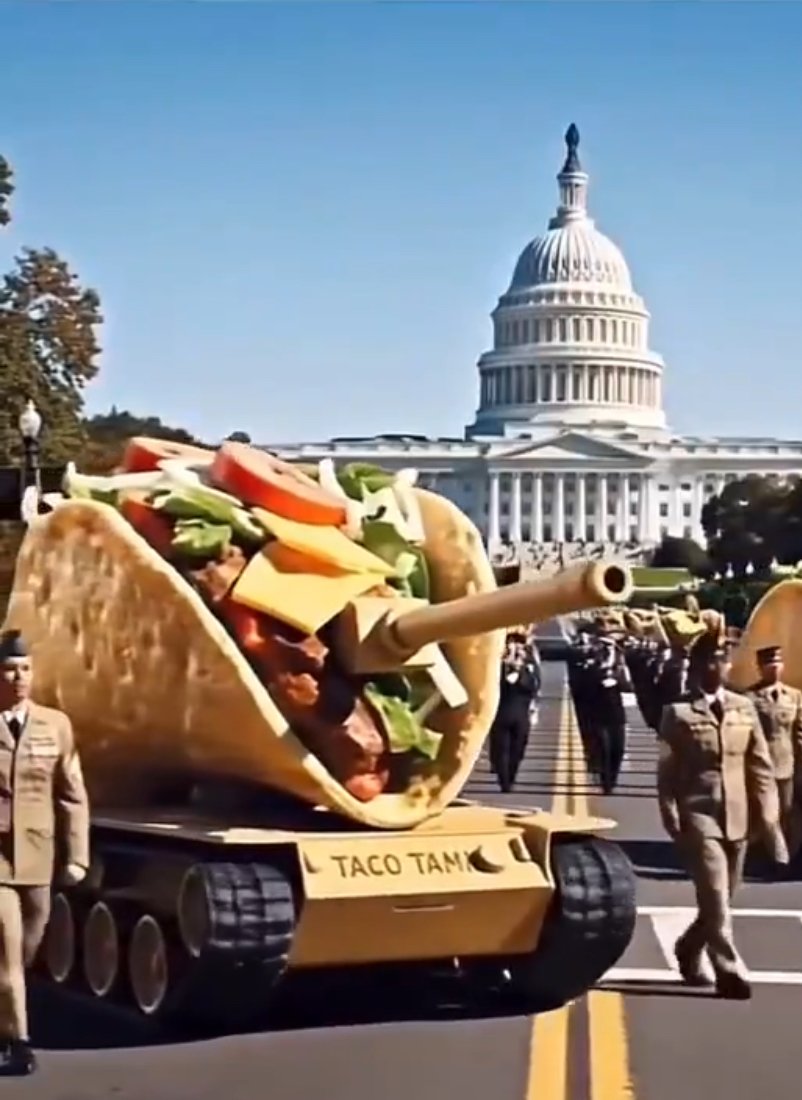Read Why is TACO Such a Powerful Meme Material
Explore the growing popularity of the phrase "Trump Always Chickens Out" (TACO) and how it reflects public sentiment about Donald Trump's track record on tough decisions. Political analysis and cultural relevance in 2025.
TACO: Why "Trump Always Chickens Out" Is Gaining Traction in 2025 Political Discourse
In the ever-evolving world of political slogans, one acronym has started to trend in 2025 with both punch and irony: TACO – short for Trump Always Chickens Out. Originally coined as a meme, the phrase has gained momentum across social media, political commentary, and even protest signage, highlighting what critics describe as Donald Trump’s consistent pattern of backing down from difficult situations.
The Origins of TACO
The phrase "Trump Always Chickens Out" first gained attention in late 2024 during the buildup to key political debates and legal proceedings involving the former president. It was quickly shortened to the memorable acronym "TACO" – a cheeky, culturally resonant term that took off among Gen Z and millennial voters especially.
Unlike many political nicknames that fizzle out, TACO stuck. Partly because it’s funny, partly because it’s catchy, and mostly because critics found repeated examples to back it up.
What Does "Trump Always Chickens Out" Actually Refer To?
Critics of Donald Trump point to a list of instances where he either failed to follow through on bold promises or stepped back when real consequences loomed. Some of the most cited examples include:
Dodging military service with a now-infamous bone spurs claim.
Walking back on healthcare reform, despite pledging to repeal and replace the Affordable Care Act "on day one."
Backing out of presidential debates when conditions weren't favorable.
Failing to attend key court appearances in person, often sending lawyers instead while attacking the legal system from afar.
Avoiding real-time media interviews, favoring pre-recorded statements or controlled rallies.
To critics, these examples paint a portrait of a leader who projects bravado but retreats when decisions become difficult or personally risky.
Memes Meet Messaging: How TACO Took Off
The acronym TACO is a prime example of modern political memetics. It’s short, it’s humorous, and it flips Trump’s own branding tactics back on him. Social media platforms like TikTok, X (formerly Twitter), and Threads are now filled with satirical videos and graphics using TACO as a shorthand critique.
Some protest signs read:
“We brought the TACO sauce. Where’s the heat?”
Others riff on Trump's history with fast food:
“You love tacos, but hate taking responsibility? Sounds familiar.”
TACO has entered the pop-political lexicon not only as a jab but as a symbol of a wider sentiment—that bravado without action is hollow.
Supporters Push Back
Naturally, Trump supporters reject the label. They argue that Trump’s record includes bold actions—such as appointing conservative judges, reshaping U.S. foreign policy, and disrupting political norms. Many claim the TACO slogan is just another example of partisan spin designed to distract from what they see as his accomplishments.
Still, slogans like TACO succeed because they reflect a perception, not just a record. Whether you agree with it or not, it’s a cultural artifact of 2025—shorthand for a broader debate about strength, follow-through, and political accountability.
Final Thoughts: TACO and the 2025 Election
As we head into the next election cycle, phrases like Trump Always Chickens Out reveal how humor and frustration often merge in political discourse. For Trump’s critics, TACO isn’t just a joke—it’s a serious statement about trust and leadership under pressure. For his supporters, it’s a sign that the media and left-wing commentators are still obsessed with taking him down.
Either way, one thing is clear: TACO is on the menu in 2025—and it’s being served hot.


